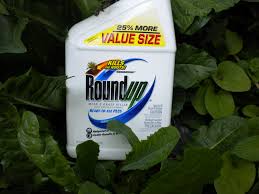* There’s strong evidence that the herbicide causes birth defects and probably causes cancer. There’s also reason to believe it causes or exacerbates numerous chronic illnesses
On March 20, the International Agency for Research on Cancer (IARC) reclassified glyphosate as a chemical that probably causes cancer. The IARC is a branch of the World Health Organization that focuses on cancer, and it combines the knowledge and expertise of epidemiologists, laboratory scientists, and biostatisticians. The IARC has been engaged in cancer research for more than five decades, and its vast experience in cancer research has led the agency to conclude that “most cancers are, directly or indirectly, linked to environmental factors and thus are preventable.”
The IARC had previously designated glyphosate as possibly carcinogenic. Monsanto, a leading producer of glyphosate under the trade name Roundup, immediately issued a press release challenging the new IARC designation and contending that Roundup is safe. But Monsanto has a tremendous amount at stake. Half of the corporation’s revenues come from sales of Roundup and Roundup Ready seeds, which can tolerate the herbicide. Monsanto advocates that farmers spray their fields heavily and repeatedly with Roundup in order to kill unwanted weeds, and Monsanto’s corporate strategy is based on the assumption that Roundup is safe. If Roundup is found to be toxic, the entire house of cards comes tumbling down, and with it, Monsanto and biotech agriculture. The banning of glyphosate could mean bankruptcy for Monsanto.

